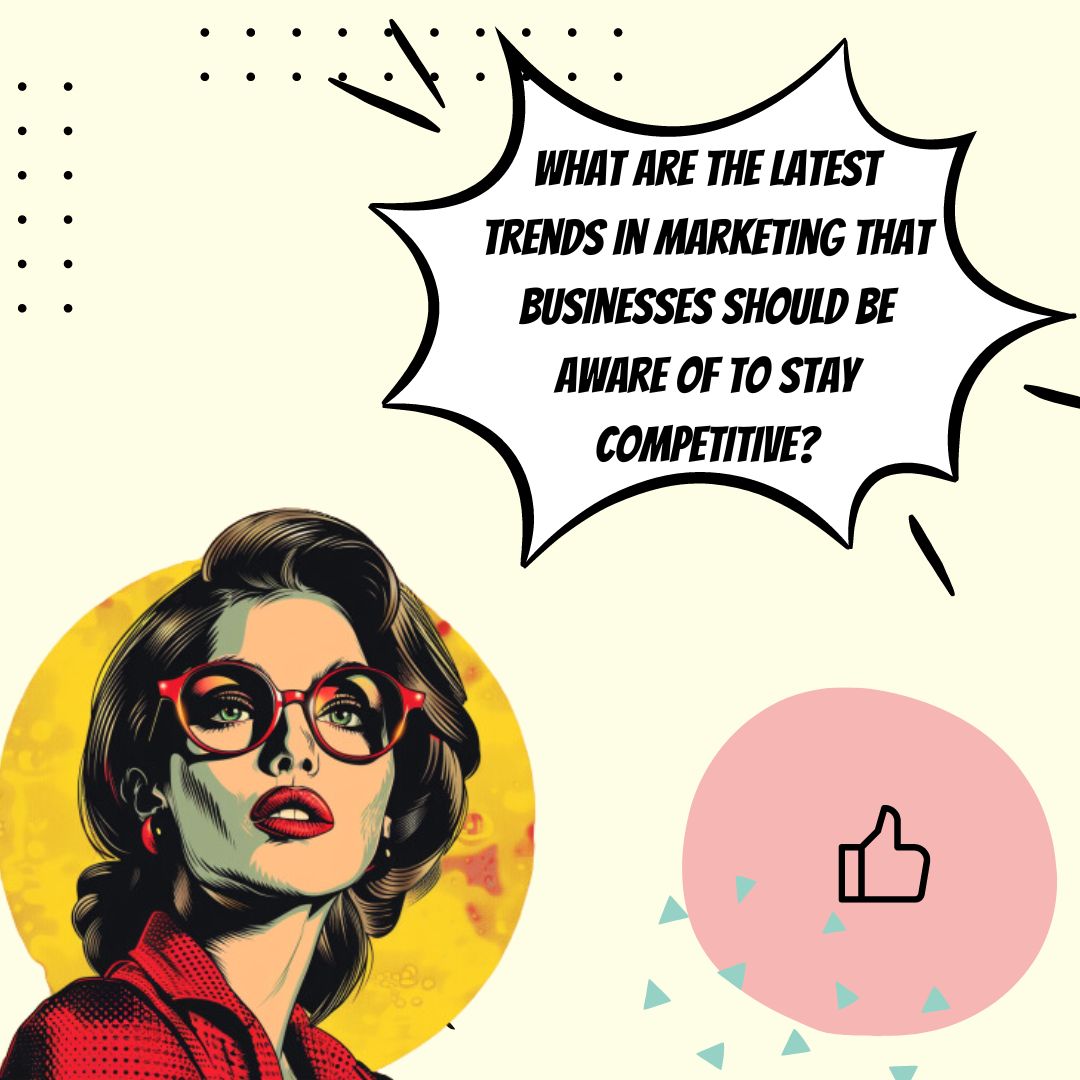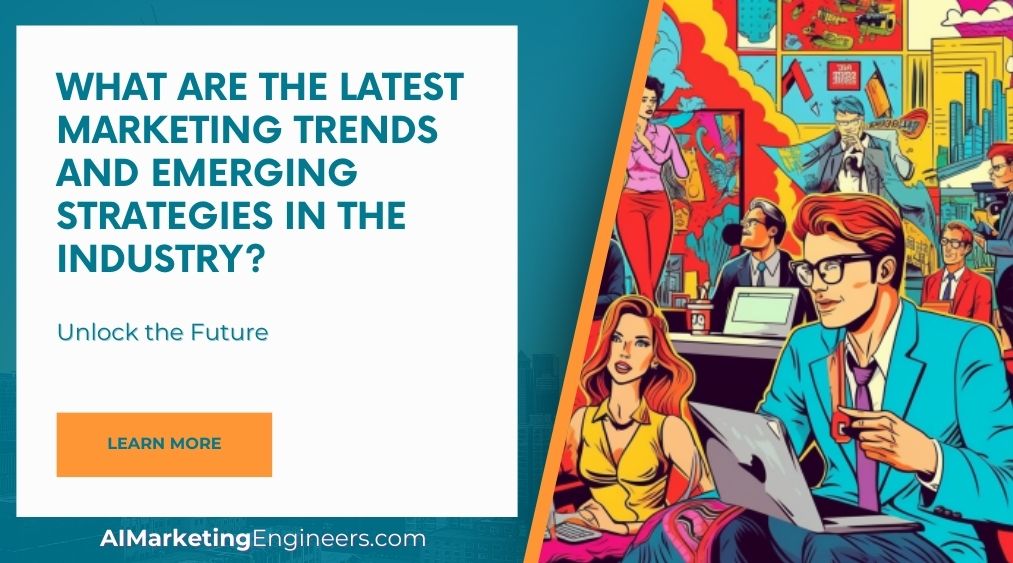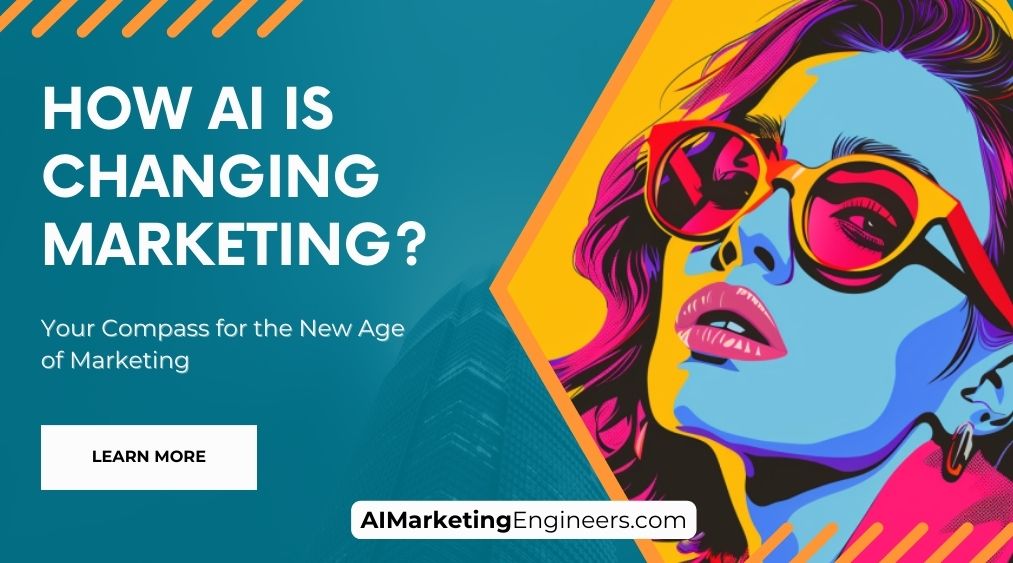Key Takeaways
✅ Personalization and AI Integration: Leveraging AI to personalize customer experiences is a leading trend. Businesses use AI to analyze data, predict customer behavior, and deliver tailored content and offers. This enhances engagement, improves customer satisfaction, and ensures that marketing efforts are more relevant and effective.
✅ Video Marketing and Live Streaming: The popularity of video marketing and live streaming continues to rise. Platforms like YouTube, TikTok, and Instagram Live offer powerful tools for businesses to connect with audiences in real-time, showcase products, and create engaging, shareable content that boosts brand visibility and customer interaction.
✅ Sustainability and Social Responsibility: Consumers increasingly prefer brands that prioritize sustainability and social responsibility. Businesses are adopting eco-friendly practices and promoting social causes in their marketing strategies. This trend not only attracts environmentally conscious customers but also builds brand loyalty and enhances the company’s reputation.

Introduction
Are you ready to propel your marketing strategies into the future? With the pace at which the marketing world is evolving, staying ahead might seem daunting. From emerging strategies to groundbreaking marketing trends, this article dives deep into what’s new and necessary to keep your brand competitive and vibrant. We’ll explore personalization, the booming influence of social media, and the undeniable impact of video content to give you a comprehensive understanding of modern marketing. Tune in for actionable insights and explore the blend of creativity and technology that could define the future of your marketing success.
Top Statistics
| Statistic | Insight |
|---|---|
| Video Marketing Usage: 86% of businesses use video as a marketing tool. (Source: HubSpot) | This high adoption rate indicates that video content is essential for engaging customers and driving sales. |
| AI in Marketing: Market to reach $40.1 billion by 2025, growing at a CAGR of 32.4%. (Source: Grand View Research) | The rapid growth rate showcases AI's pivotal role in personalizing customer experiences and improving marketing efficiency. |
| Influencer Marketing Value: Projected to be worth up to $15 billion by 2022. (Source: Business Insider) | Authenticity and trust in influencers drive consumer decisions, highlighting the need for strategic influencer partnerships. |
| Social Media Exposure: 90% of marketers noted increased brand exposure. (Source: Hootsuite) | Demonstrates the value of social media as a powerful tool for brand visibility and community engagement. |
| Mobile Web Traffic: 54% of all web traffic comes from mobile devices. (Source: Statista) | This significant statistic underscores the importance of optimizing marketing strategies for mobile to reach a broader audience. |
Personalization and Data-Driven Marketing
In an era where consumers are bombarded with choices, delivering tailored experiences can be a game-changer. With the help of customer data, companies are embracing personalization to create more engaging interactions. Advances in AI and machine learning not only enable predictive analytics but also enhance the ability to understand consumer behavior in real-time. According to Forbes, this targeted approach can significantly increase conversion rates. Meanwhile, Harvard Business Review highlights how essential personalization is in building long-term customer relationships.
Social Media and Influencer Marketing
As the digital landscape expands, so does the power of social media and influencers. Platforms like Instagram and Twitter are not just social networking sites anymore; they are powerful tools for marketing outreach. A partnership with the right influencers allows businesses to build trust and authenticity among their target demographics. Business Insider suggests that consumers are more likely to trust a brand when endorsed by an influencer they admire, while Hootsuite demonstrates how these collaborations can boost engagement and reach.
Video Content and Visual Storytelling
The demand for video content continues to surge, as indicated by HubSpot, which states that over 50% of consumers want to see videos from brands they support. Wyzowl supports this trend, revealing that video is the most memorable form of content, substantially enhancing brand recall. Through visual storytelling, companies can connect emotionally with audiences, making complex messages easier to digest and much more engaging.

Voice Search Optimization
With the rise of AI assistants like Alexa and Google Home, optimizing for voice search has become an essential facet of SEO strategies. According to Search Engine Land, optimizing your content for voice search can significantly enhance visibility in this less crowded and rapidly growing space. Think with Google suggests that voice search queries tend to be longer and more conversational, urging marketers to refine their keyword strategies accordingly.
Interactive and Immersive Experiences
As technology evolves, so does the expectation of digital experiences. Interactive and immersive technologies such as augmented reality (AR) and virtual reality (VR) are redefining customer engagement. Forrester's research emphasizes how these technologies lead to deeper brand connections, while Adweek shows real-world applications, like virtual store tours and product demos, that boost consumer interest and interaction.
Sustainability and Purpose-Driven Marketing
Today’s consumers are increasingly conscious of environmental and social issues, which influence their purchasing decisions. Brands that adopt sustainability as a core part of their business strategy not only foster goodwill but also appeal to this growing demographic. According to McKinsey & Company, 70% of consumers are more likely to choose a brand that demonstrates social responsibility. Deloitte similarly outlines how purpose-driven marketing strategies can enhance brand loyalty and reputation in the long run.
By staying attuned to these shifts and integrating these strategies, businesses can create more dynamic and effective marketing campaigns, meeting modern consumers where they are and leveraging the latest technological advancements.

AI Marketing Engineers Recommendation
Recommendation 1: Leverage Artificial Intelligence for Personalized Customer Experiences: Utilizing AI tools can transform how you engage with your customers by personalizing the customer experience at scale. According to a report by Salesforce, 84% of customers say being treated like a person, not a number, is very important to winning their business. AI can analyze customer data and behavior to offer tailored recommendations, content, and promotions that meet individual preferences.
Recommendation 2: Incorporate Video Content into Your Marketing Strategy: Video marketing continues to dominate as an engaging and effective form of content. With users consuming over 1 billion hours of YouTube videos a day, integrating video content can significantly increase your visibility and engagement rates. Videos can be used for tutorials, behind-the-scenes looks, product showcases, and customer testimonials, making them versatile tools for connecting with audiences.
Recommendation 3: Utilize Chatbots for Enhanced Customer Service and Engagement: Chatbots powered by AI can dramatically improve your customer interaction, providing quick responses to customer inquiries and available 24/7. This tool not only enhances the customer service experience but also supports your engagement strategy by keeping potential customers engaged with interactive and immediate communication. Reports indicate that chatbots can help businesses save up to 30% in customer support costs, making them not only effective but also cost-efficient.
Relevant Links
- Embrace AI & Soar: Strategic Marketing Automation
- Inside AiMarketingEngineers.com: Meet Our AI Wizards
- Unlocking the Power of AI in Marketing
- AI & the Future of Small Business
- Google Ads & AI: A Modern Marketer's Playbook
Conclusion
As we navigate through the ever-transforming terrain of the marketing industry, it's evident that staying updated with the latest trends and strategies is more than a necessity—it's crucial to the very survival and growth of businesses. From the power of personalization to the innovative leaps through AI and machine learning, the trajectory of marketing continues to soar towards more tailored and insightful campaigns. Similarly, the sway of social media and influencers undeniably shapes the public’s purchase decisions, highlighting the need for brands to foster authentic connections and trust with their audiences.
Moreover, the compelling allure of video content and visual storytelling is undeniable, as these mediums deliver messages in the most engaging and digestible ways possible. With the rapid adoption of smart devices, adapting to voice search optimization has also become a staple in ensuring visibility in a voice-driven future. Meanwhile, the rise of interactive and immersive experiences through AR and VR technologies captivates consumers, offering them a hands-on connection to brands like never before.
However, perhaps the most significant shift observed is the pivot towards sustainability and purpose-driven marketing. In today's conscientious market, a brand’s identity and core values resonate deeply with consumers, influencing their loyalty and support. The integration of these ethical dimensions into marketing strategies not only enhances brand perception but also contributes to a larger societal impact.
In summary, each of these emerging strategies and trends carries the potential to make profound changes in how we conceptualize, execute, and perceive marketing. Embracing these innovations is not futuristic—it's essential for any brand aiming to make a significant impact now and in the years to come. As marketers, the challenge is not just to adapt but to lead with creativity, empathy, and technology. The future beckons—are you ready to meet it head-on?

FAQs
Question 1: What are the latest marketing trends in the industry?
Answer: The latest marketing trends include personalization, influencer marketing, video marketing, interactive content, and voice search optimization.
Question 2: What is the importance of data-driven marketing?
Answer: Data-driven marketing is crucial as it uses customer data to inform marketing decisions, helping to personalize messaging and optimize marketing efforts.
Question 3: How can marketers leverage artificial intelligence (AI) and machine learning in their strategies?
Answer: Marketers can use AI and machine learning to automate tasks, improve personalization, analyze data, and optimize campaigns, along with deploying chatbots and using predictive analytics.
Question 4: What is the role of social media in modern marketing strategies?
Answer: Social media is vital in modern marketing for connecting with the audience, sharing content, engaging in communication, leveraging social proof, running ads, and collaborating with influencers.
Question 5: How can marketers adapt to the rise of voice search?
Answer: To adapt to voice search, marketers should create content that answers questions, optimize for long-tail keywords, use natural language, and ensure their website is mobile-friendly and fast.
Question 6: What is the concept of omnichannel marketing, and why is it important?
Answer: Omnichannel marketing provides a seamless customer experience across all platforms. It's important for building brand loyalty, improving customer satisfaction, and boosting sales.
Question 7: How can marketers use storytelling to engage their audience?
Answer: Storytelling can engage the audience by crafting compelling narratives that resonate, highlight brand values, and connect emotionally with the customers.
Question 8: What is the role of user-generated content (UGC) in modern marketing strategies?
Answer: UGC helps build trust and authenticity, providing social proof. Marketers can encourage customers to share experiences, repurpose this content, and work with micro-influencers.
Question 9: How can marketers measure the success of their marketing campaigns?
Answer: Success can be measured by tracking KPIs like traffic, engagement rates, conversion rates, ROI, and CLV. A/B testing, surveys, and customer feedback are also valuable tools.
Question 10: What are some emerging marketing strategies that marketers should consider?
Answer: Emerging strategies include marketing using augmented reality (AR), virtual reality (VR), chatbots, programmatic advertising, and the expanding use of podcasts and audio content.

Academic References
- Salesforce. (2021). State of Marketing 2021. This report highlights the latest marketing trends and emerging strategies in the industry, focusing on the importance of personalization, customer engagement, and data-driven decision-making. Key findings include the increased use of AI and machine learning in marketing, the rise of social commerce, and the shift towards omnichannel experiences.
- HubSpot. (2021). Digital Marketing Trends 2021. This comprehensive report covers the latest marketing trends and emerging strategies, emphasizing the importance of video marketing, social media storytelling, and the rise of voice search optimization. The report also discusses the growing influence of influencer marketing and the increasing use of chatbots for customer service.
- Forrester. (2021). Marketing Trends 2021: What's Next for Marketers. This report delves into the latest marketing trends and emerging strategies, highlighting the growing importance of customer experience, the shift towards agile marketing, and the increasing role of data privacy and security. The report also discusses the rise of marketing automation and the need for marketers to embrace a more human-centered approach.
- Smart Insights. (2021). The State of Digital Marketing 2021. This report provides insights into the latest marketing trends and emerging strategies, focusing on the growing importance of content marketing, the rise of programmatic advertising, and the increasing use of augmented reality (AR) and virtual reality (VR) in marketing. The report also discusses the need for marketers to embrace a more customer-centric approach and the importance of data-driven decision-making.
- Deloitte. (2021). The Future of Marketing 2021. This report explores the latest marketing trends and emerging strategies, emphasizing the growing importance of customer data, the rise of purpose-driven marketing, and the increasing use of personalization and segmentation. The report also discusses the need for marketers to embrace a more agile and adaptive approach and the importance of building trust with customers.








